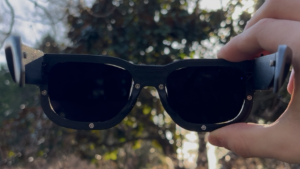From the Series
Neonatal care is a tricky business, especially when breathing difficulties come into play. Stanford graduate Alejandro Palandjoglu has created a breathing device for babies that aims to address the issue of child death due to respiratory illnesses in developing countries.
Every year 2 million children in the developing world die from pneumonia – more than AIDS, malaria and tuberculosis combined. The AdaptAir, invented by Palandjoglu, provides a universal, nasal fitting treatment for these children, giving them life.
AdaptAir is not only saving the lives of children but also reducing the amount of time infants are spending in Intensive Care Units. Based on the simple concept of one-size-fits-all, the device is designed to fit the generic nasal prongs currently used in various hospitals as well as new prongs that are able to fit a variety of children’s nostrils creating a strong seal.
The device makes use of Bubble CPAP therapy, continuous positive airways pressure, and is made from soft, gentle and pliable silicone. Resource-limited settings also reuse the majority of medical devices and products and so AdaptAir has been designed for easy cleaning and sterilisation.
AdaptAir is a finalist in the Body category of the INDEX: Award 2013.











